Mastering Sales Planning: A Comprehensive Guide for Sales Managers
Casey O'Connor
Contents
- What is Sales Planning?
- Understanding Your Market
- Setting Realistic Sales Goals
- Creating an Effective Sales Strategy
- Building a High-Performing Sales Team
- Utilizing Sales Technology
- Developing a Sales Forecast
- Monitoring and Analyzing Performance
- Effective Communication within the Sales Team
- Adapting to Market Changes
- Conclusion
Most sales managers know that, without sales planning, their team is unlikely to be successful in the long term.
Strong data backs this up: 79% of top-performing teams rely on formal sales processes to guide them. There’s no question that proper planning leads to strong performance.
Still, sales planning isn’t always an easy or straightforward process. It requires a methodical approach that ensures the plans you create give each member of your team clarity, direction, and confidence throughout the sales process.
Small and medium-sized businesses, in particular, can sometimes be prone to neglecting careful and routine sales planning in favor of rapid growth and forward momentum. But teams of all sizes and experience levels, and sales professionals in all roles will benefit from having a dynamic sales plan that can guide them toward their sales goals.
In this article, we’ll go over everything sales managers need to know about sales planning from top to bottom.
Here’s what we’ll cover:
- What is Sales Planning?
- Understanding Your Market
- Setting Realistic Sales Goals
- Creating an Effective Sales Strategy
- Building a High-Performing Sales Team
- Utilizing Sales Technology
- Developing a Sales Forecast
- Monitoring and Analyzing Performance
- Effective Communication within the Sales Team
- Adapting to Market Changes
What is Sales Planning?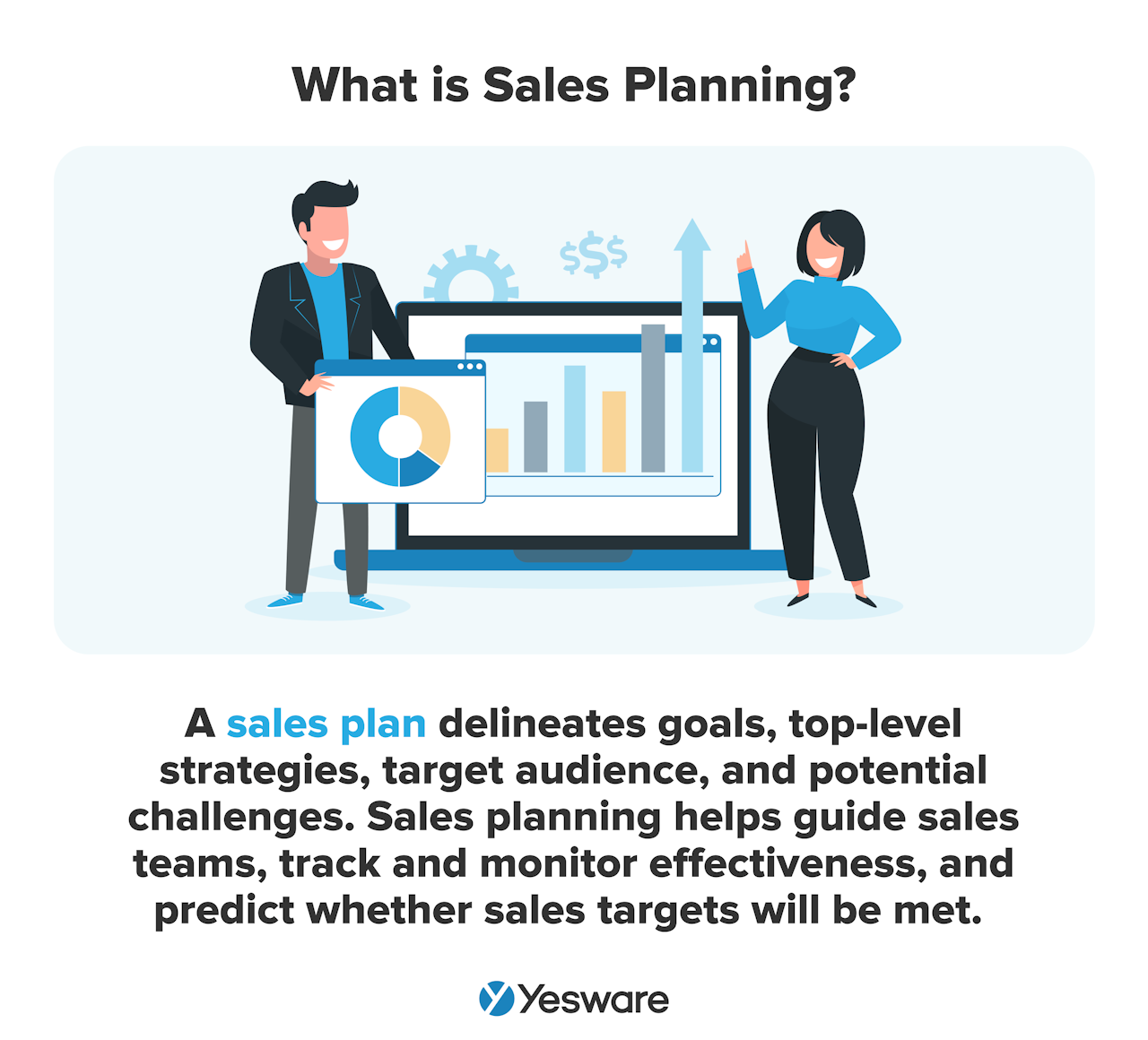
A sales plan delineates your goals, top-level strategies, target audience, and potential challenges.
Most sales plans resemble a conventional business plan, but sales plans are dedicated specifically to outlining your sales strategy. A business plan defines your objectives, while a sales plan provides a detailed roadmap on precisely how you intend to achieve them.
Most sales plans include information about the following:
- Target market/customers
- Revenue targets
- Sales strategies
- Pricing plans and upcoming promotions
- Deadlines and directly responsible individuals (DRIs)
- Org chart/team structure
- Available resources (including the sales budget)
- Market trends and conditions
But the exact focus(es) of your sales planning process will vary depending on the unique needs of your team.
Sales Planning Goals
Ideally, your sales planning process should address both short-term and long-term sales goals, objectives, required resources, etc.
The primary goals of sales planning are to:
- Clearly outline sales goals and objectives so that everyone on the team has a common understanding.
- Guide the members of your sales team through both the high-level sales strategy and sales methodology, as well as in-the-field sales tactics they will use to meet sales targets.
- Describe, in detail, the roles and responsibilities of everyone on the sales team.
- Track and monitor the effectiveness of your sales team.
- Help predict whether individual sales reps, as well as the sales team as a whole, will meet their sales targets.
Good sales planning is an ongoing, never-ending process. It should involve routine data tracking and analysis to continuously improve sales performance.
It’s okay to be a stickler about this, no matter how tedious the process may feel at first. The truth is, more than half of reps are missing their quotas.

On the other hand, top-performing teams more consistently rely on the kind of structure that sales planning provides than their lower-performing counterparts.
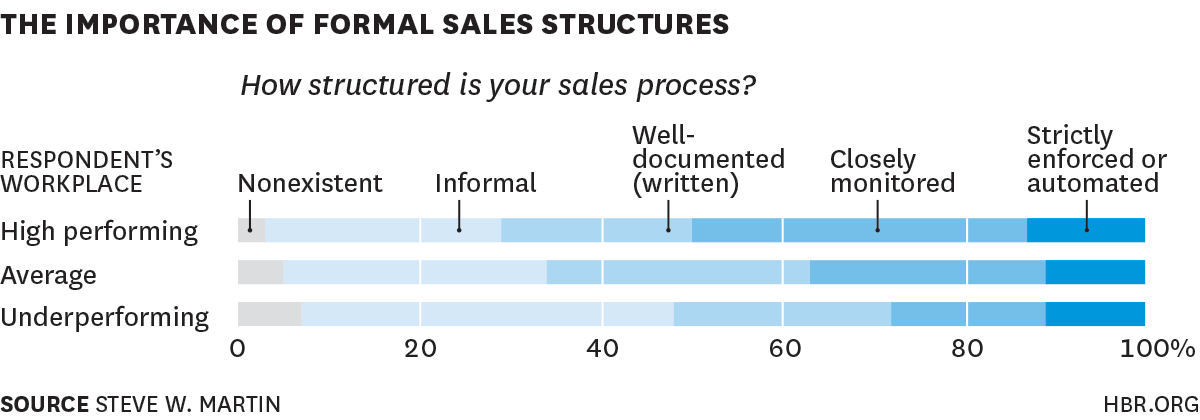
Sales planning may take time and collaboration, but the data speaks for itself: if you want your team to be high-performing, it’s worth it to invest the time into the planning process.
Understanding Your Market
It’s difficult to conduct effective sales planning without a thorough understanding of your market.
This means a few different things.
First, sales managers need to ensure that their team has a collective, detailed understanding of the target audience, as well as any buyer personas they may be likely to encounter throughout the sales process.
Most successful sales teams rely on something called an ideal customer profile and buyer persona profiles to help them prepare for these scenarios.  “Understanding the market” also means having a big-picture understanding of market trends, historical patterns, and signs of upcoming shifts or disruptions.
“Understanding the market” also means having a big-picture understanding of market trends, historical patterns, and signs of upcoming shifts or disruptions.
Sales managers need to ensure that they and their team have a continuously up-to-date understanding of their market in order to complete the sales planning process productively.
Setting Realistic Sales Goals
One of the main purposes of sales planning is to clearly define sales goals for your team.
Setting sales goals is one of the most consequential parts of the sales planning process. Sales goals that are too easy won’t push your team to reach their full potential, but targets and objectives that are too challenging can end up being counterproductive.
Sales reps also need to be crystal clear on what’s expected of them in order to reach those goals. Miscommunication, even minor, is one of the fastest ways to derail forward progress.
To mitigate these issues and help define other parameters around the goal-setting process, most successful goal-setters use some variation of the SMART goal framework to help them create objectives that motivate the team and generate results.
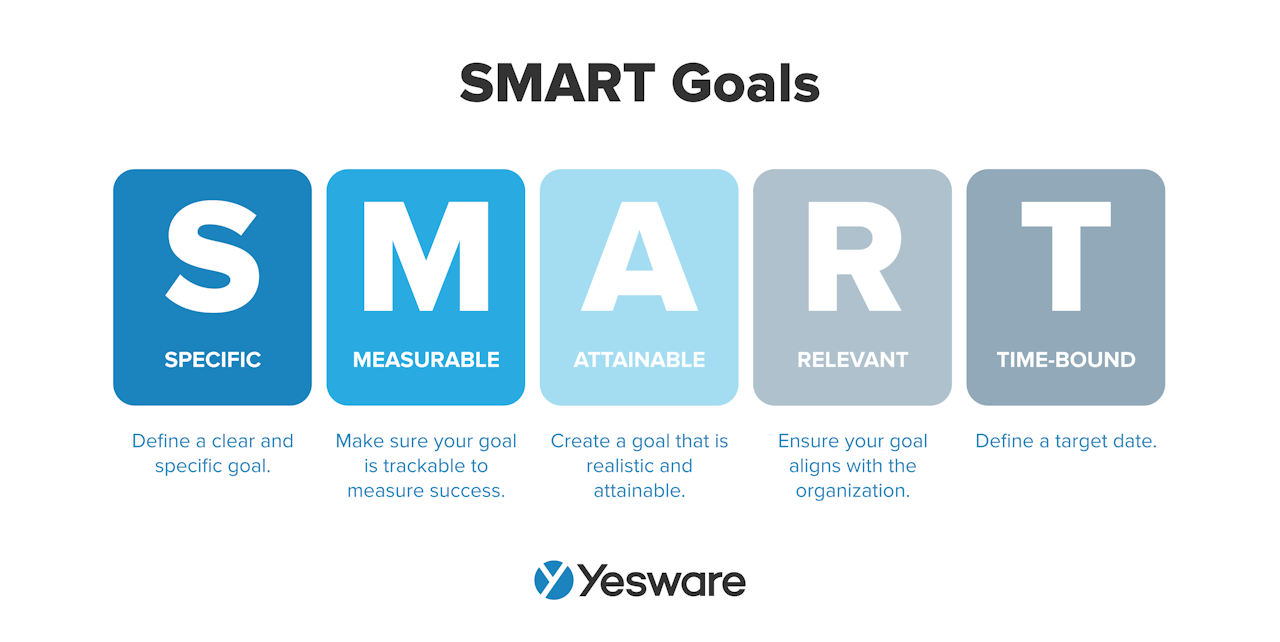
Remember to also check in with your C-suite about their overarching business goals and objectives, as sales goals should always align with and contribute to them.
Creating an Effective Sales Strategy
A big bulk of sales planning is creating effective sales strategies.
Sales strategy provides direction and helps determine the actionable steps your team needs to take to meet its targets. The sales strategies you choose for your team to implement throughout the sales process will determine how productive your sales funnel becomes over time.
To make this part of sales planning more tangible, sales managers should with with their sales teams to create a sales playbook. 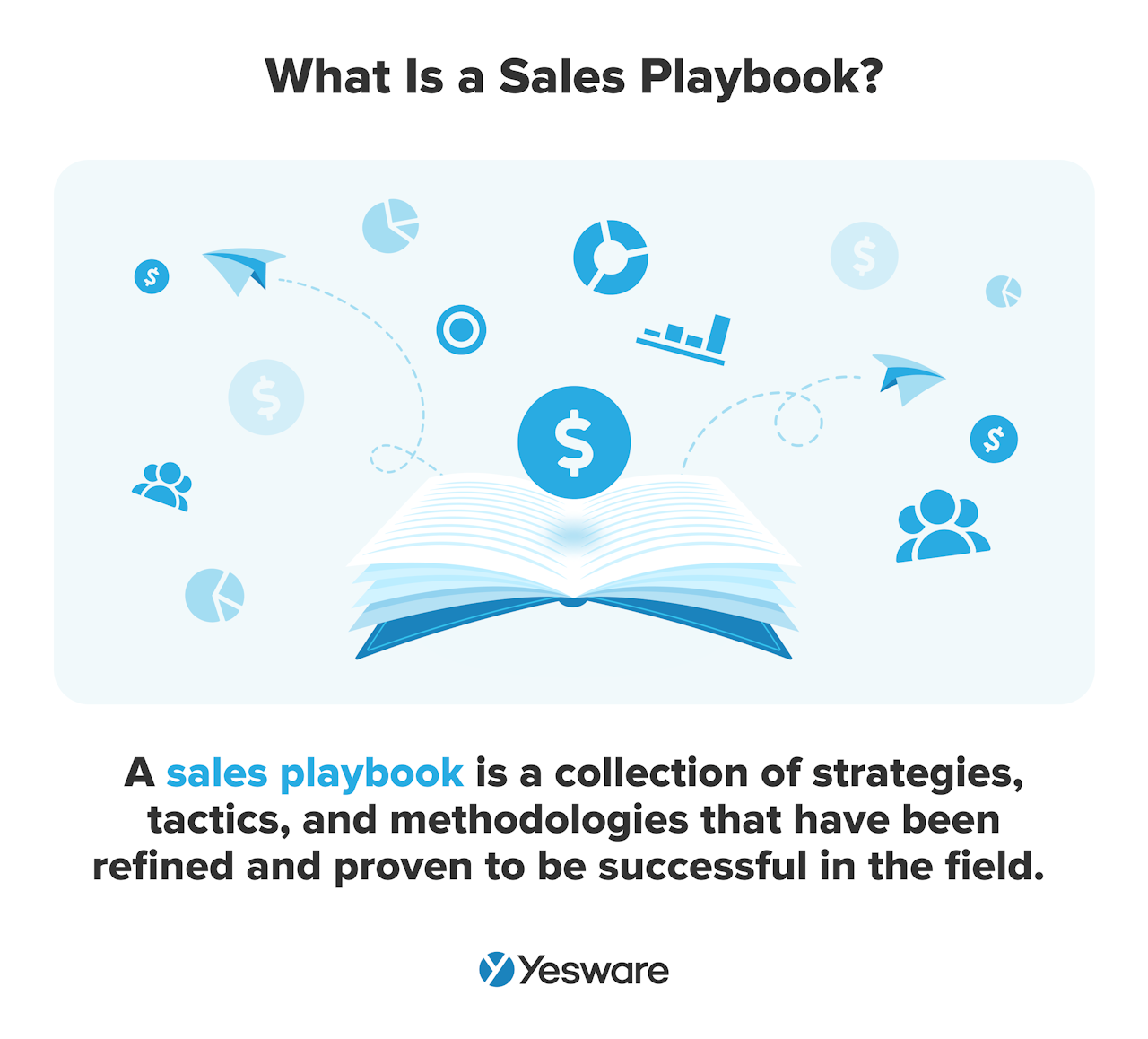 Sales playbooks can include a wide variety of tactics and ideas, including sales call scripts, competitor sales battle cards, strategies for leveraging different sales channels, and more.
Sales playbooks can include a wide variety of tactics and ideas, including sales call scripts, competitor sales battle cards, strategies for leveraging different sales channels, and more.
Creating a sales playbook can be as basic or as detailed as your team requires or can afford. 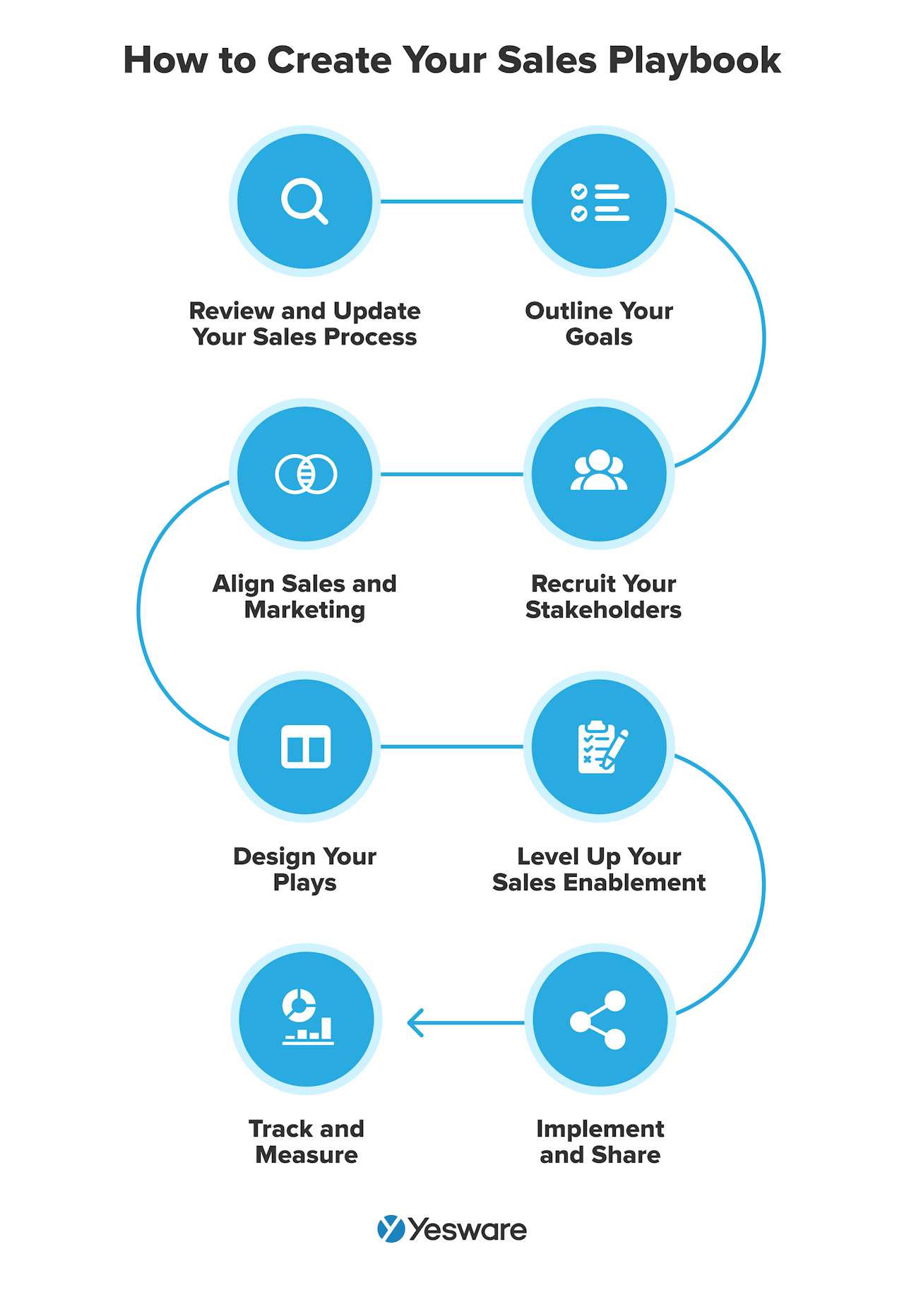 Just like sales plans, sales playbooks can and should be updated and optimized over time.
Just like sales plans, sales playbooks can and should be updated and optimized over time.
Building a High-Performing Sales Team
Sales managers can also leverage sales planning to help them develop a powerhouse sales team.
An all-star sales roster begins with hiring. Choosing the right team members from the start is very important; not only does long-term employee retention help improve company culture but it’s also financially beneficial, as it costs companies 6 – 9 months of an employee’s salary to replace them if they leave. 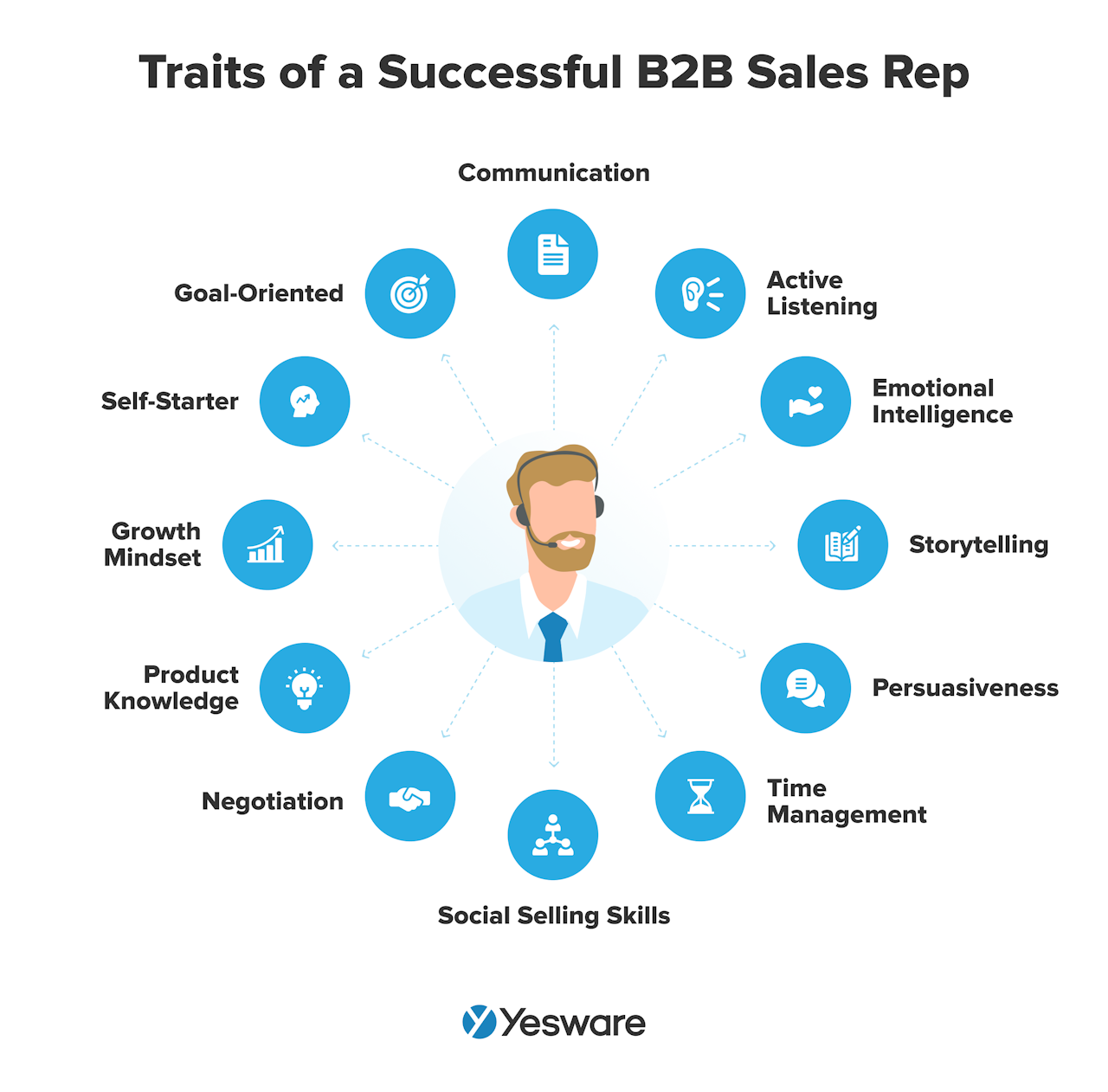 Remember to consider the team as a whole when you hire new talent. What are the individual and collective strengths and areas of need of the team? Consider this question from both your current state and where you hope to be in the future.
Remember to consider the team as a whole when you hire new talent. What are the individual and collective strengths and areas of need of the team? Consider this question from both your current state and where you hope to be in the future.
The way that you compensate and incentivize your team will go a long way in retaining them and motivating them to succeed.
Be sure to include details about compensation and commission structures in your sales planning process.
But great sales management doesn’t end at hiring great sales talent. Top-performing teams know how important ongoing training and coaching is to long-term success and sales excellence. 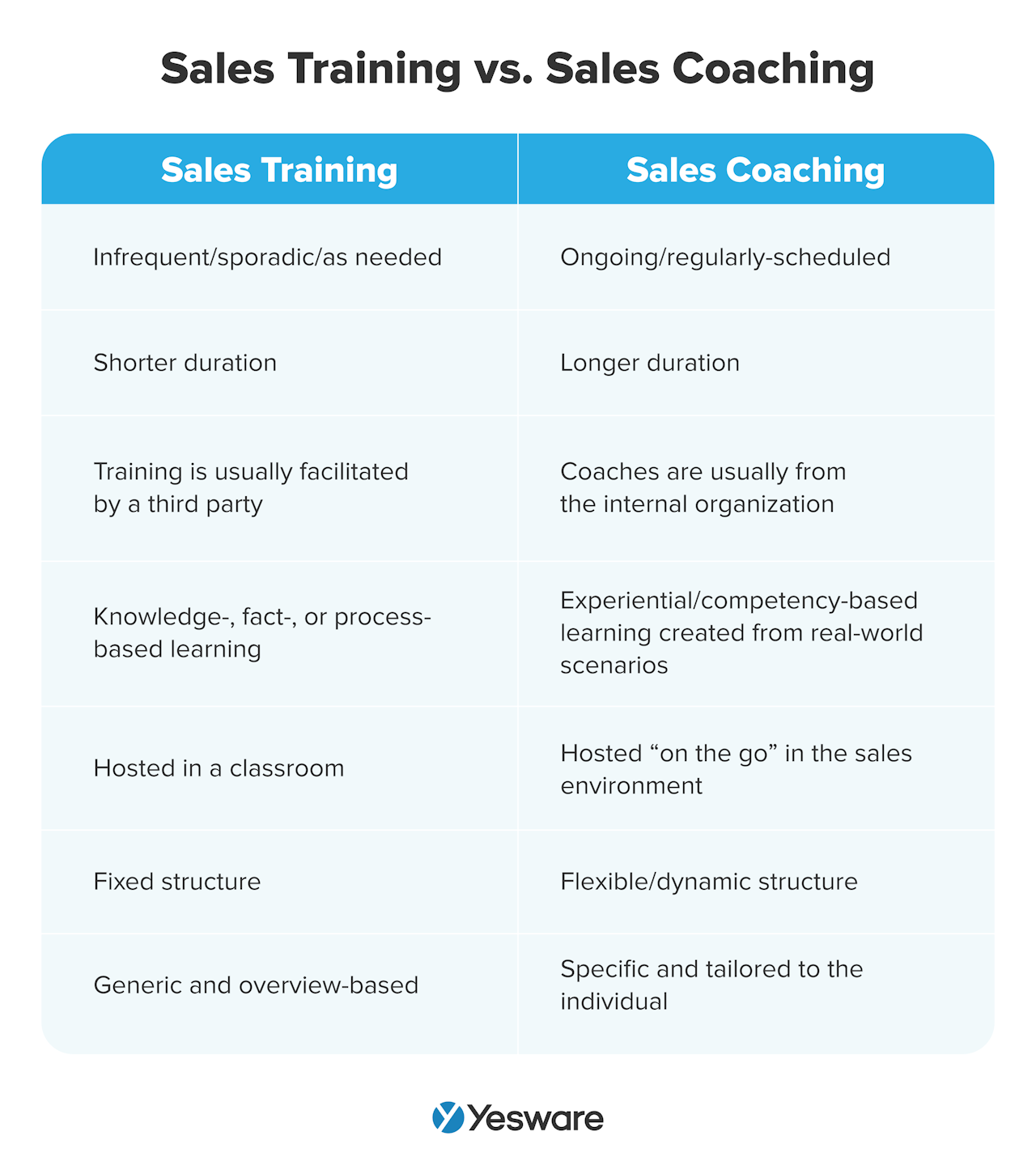 Sales training is great for filling in any knowledge or skill gaps your team needs in order to be successful or teaching them new skills or methodologies.
Sales training is great for filling in any knowledge or skill gaps your team needs in order to be successful or teaching them new skills or methodologies.
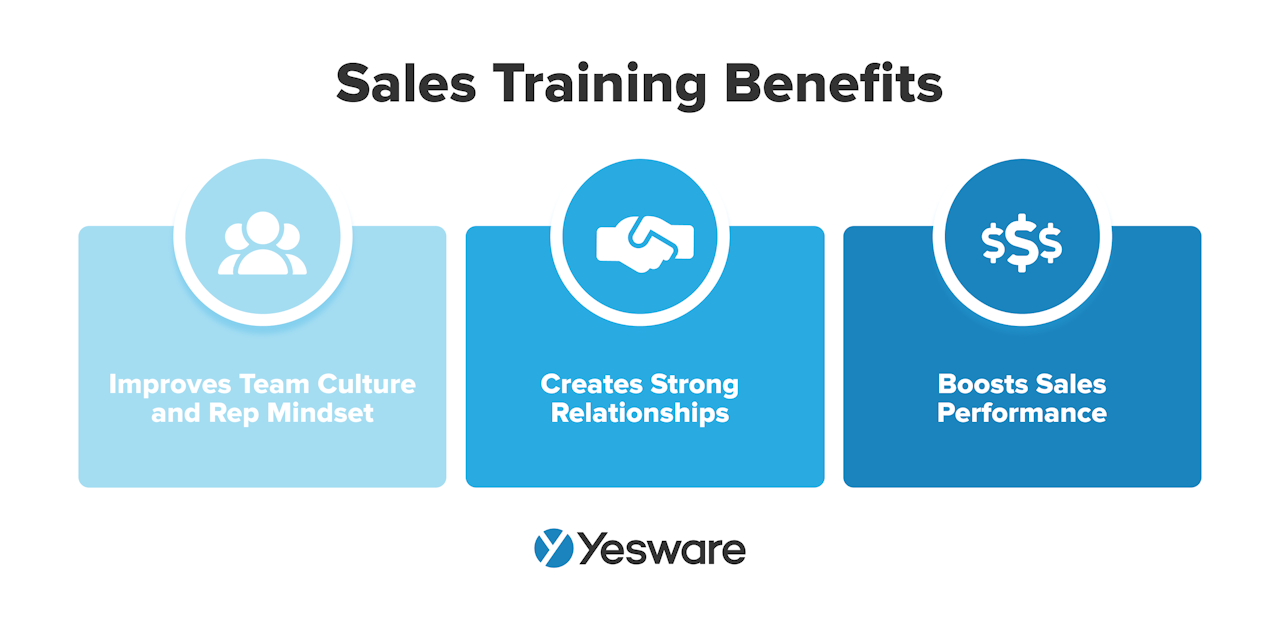
Ongoing sales coaching is also a highly effective way to improve the individual and team-wide performance of your sales team.
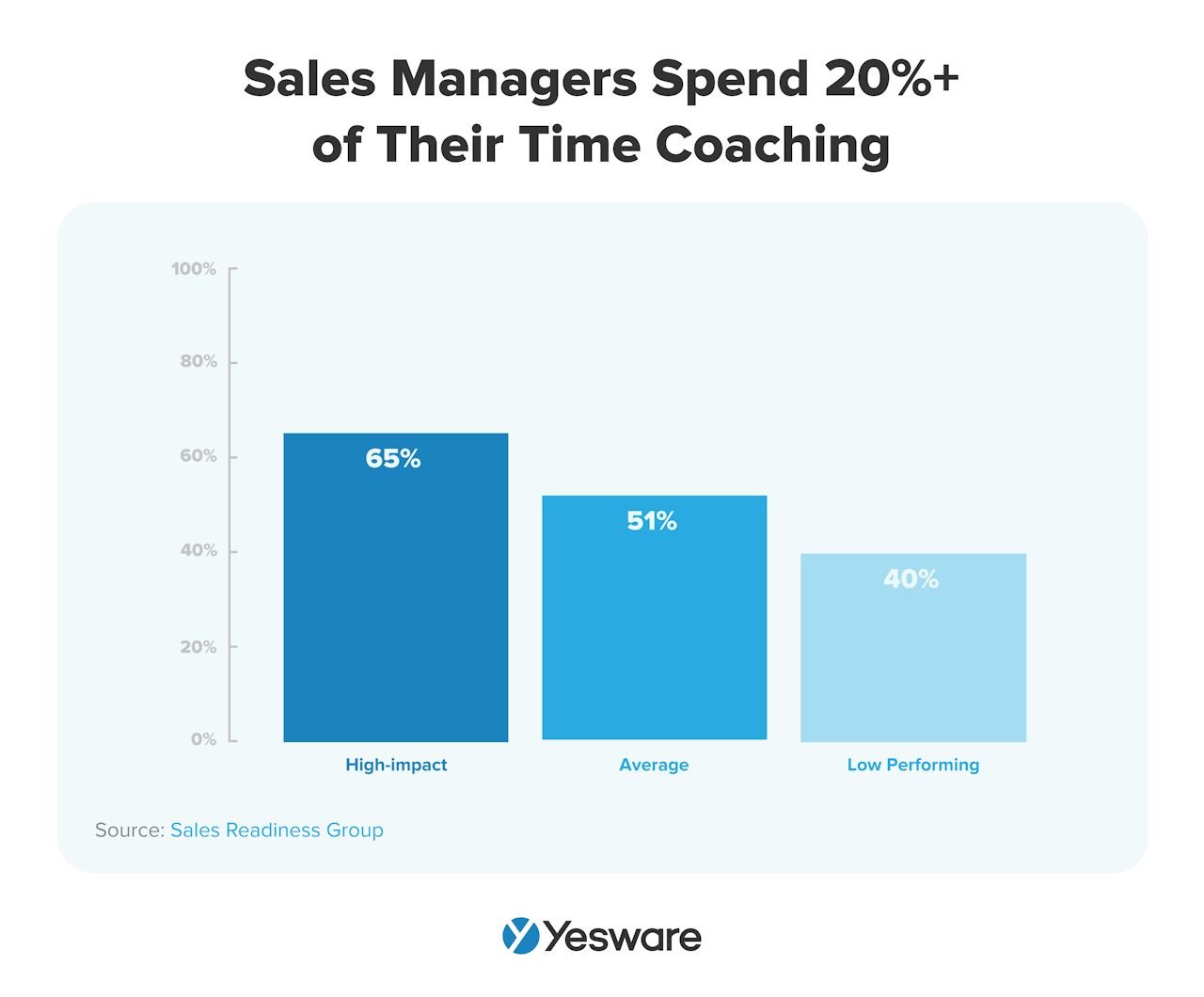 Though this may seem like a lot to juggle, effective sales planning can help ensure that sales teams are built purposefully and consistently trained for success.
Though this may seem like a lot to juggle, effective sales planning can help ensure that sales teams are built purposefully and consistently trained for success.
Utilizing Sales Technology
Having access to capable sales technology can make sales planning significantly more efficient and effective.
Sales enablement tools, in particular, can be extremely productive during sales planning. 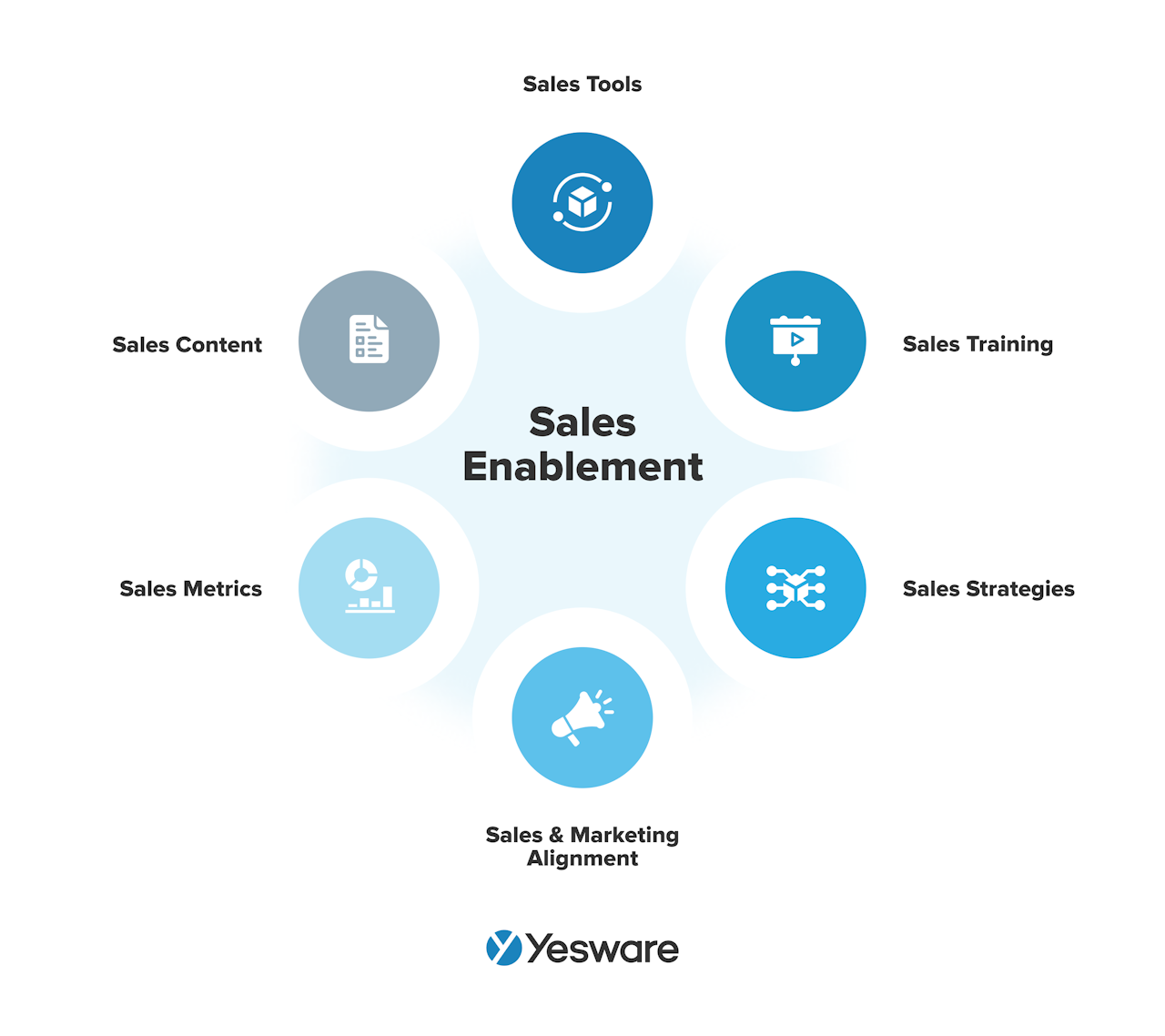 Sales enablement software can help sales managers with everything from business intelligence and analytics to content management to buyer engagement insights.
Sales enablement software can help sales managers with everything from business intelligence and analytics to content management to buyer engagement insights.
Yesware, for example, helps sales teams perform personalized, data-driven outreach at scale.
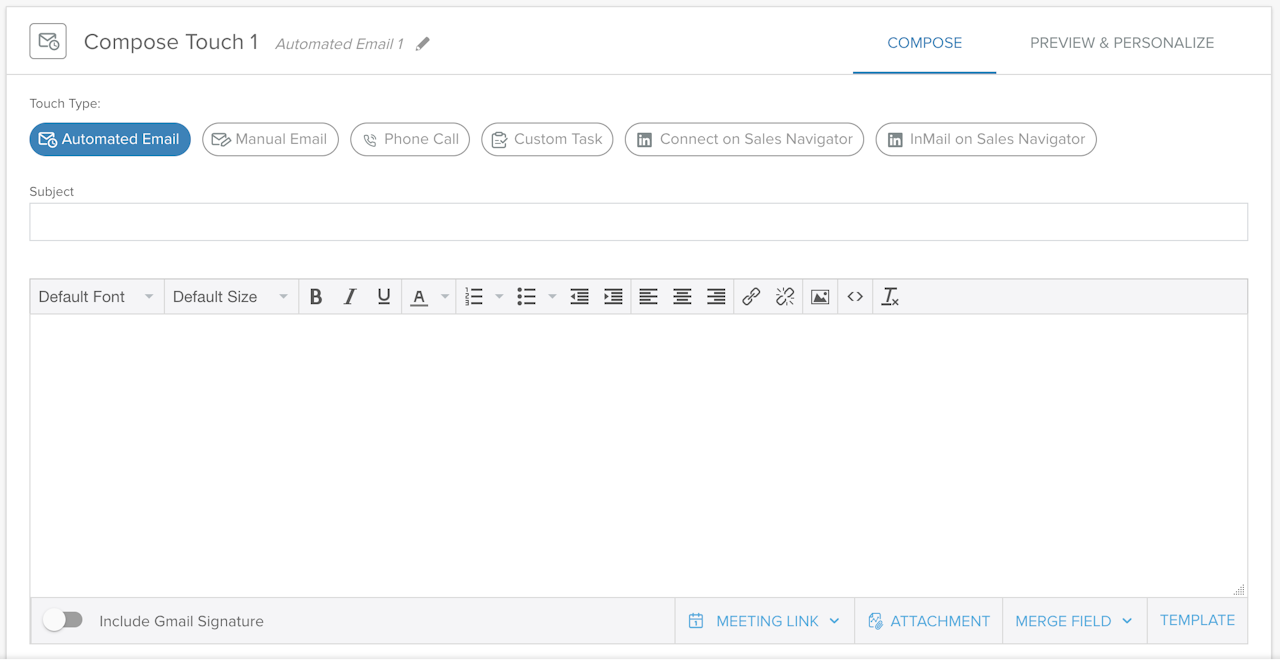
With features like multi-channel campaigns, attachment tracking, and analytics and reporting, sales reps always have access to up-to-the-minute information about what their buyers are doing and how to best connect with them.
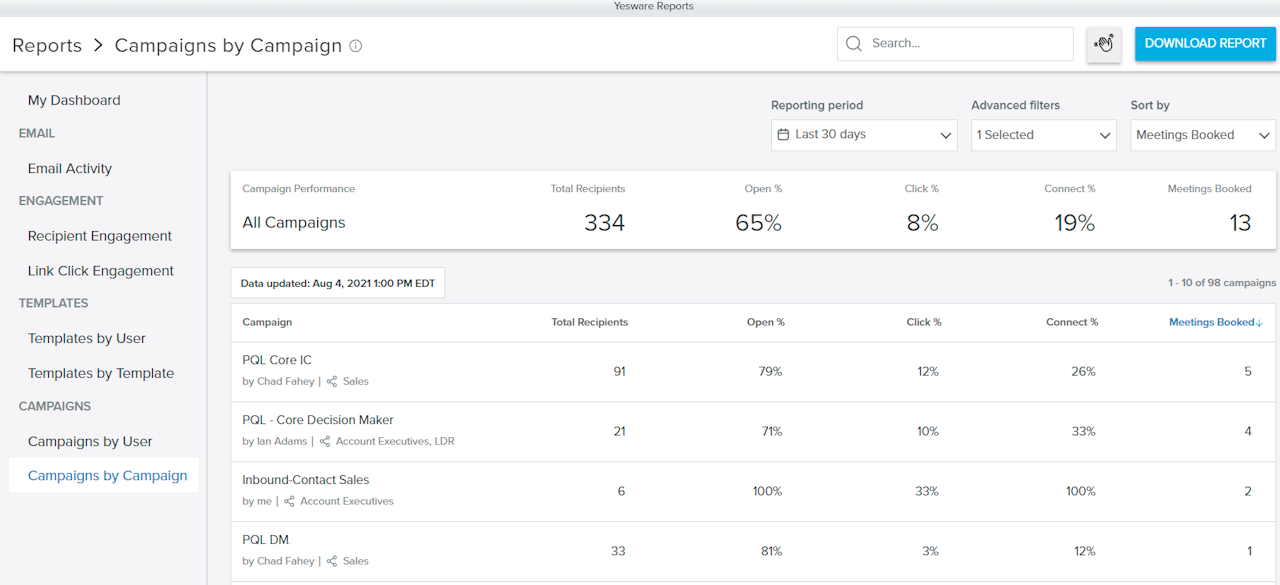
Depending on your team’s size, level of experience, and operating needs, your tech stack may include different tools and capabilities.
Teams of all sizes, even SMBs, need to have access to a functional customer relationship management (CRM) system, an email service provider, and a couple of other basic platforms. From there, teams may also consider systems like sales forecasting software, lead generation platforms, and more.
To learn more about what to consider for your tech stack, including Yesware’s 3-phase blueprint for scaling at each stage of growth, check out our implementation guide here:
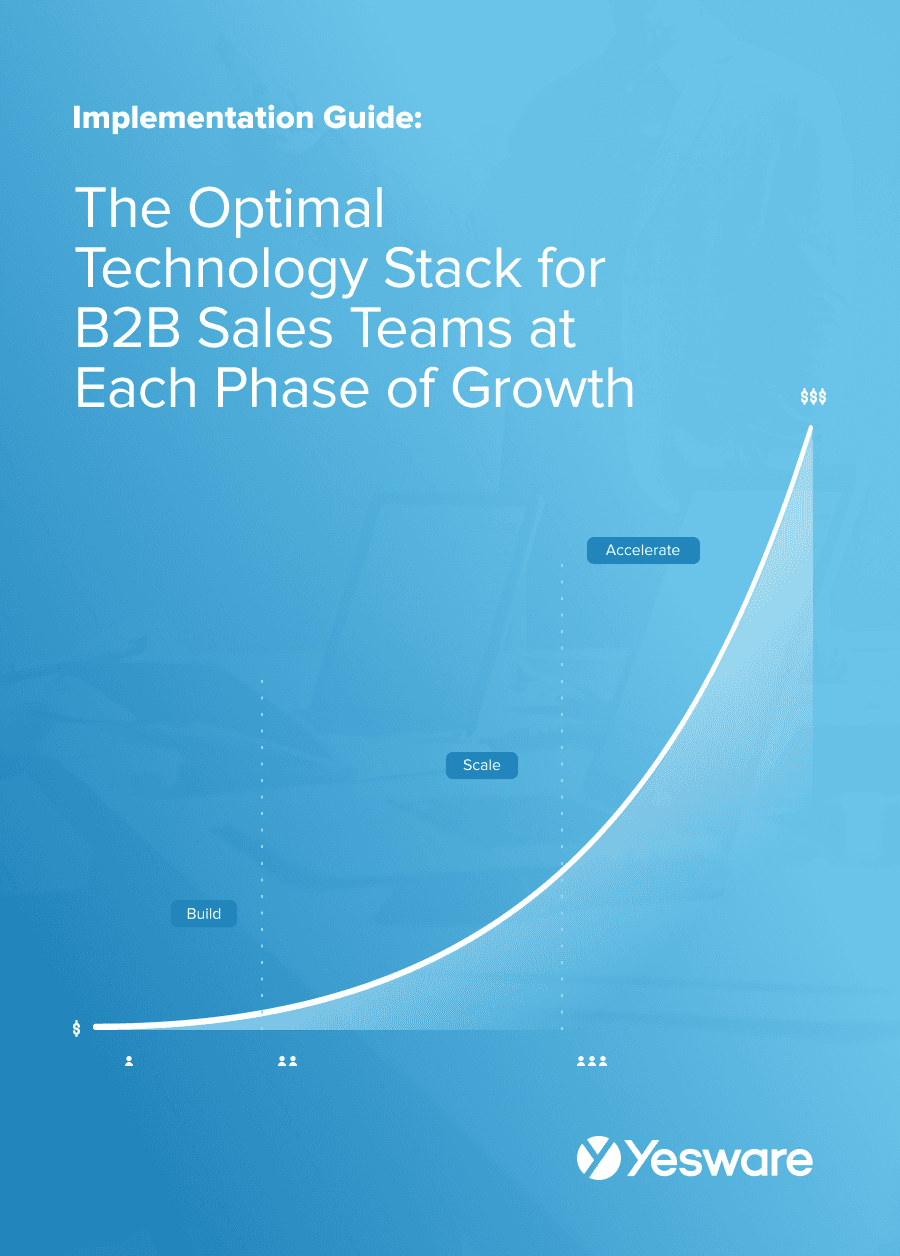 The Optimal Technology Stack for B2B Sales TeamsUsing data from the most successful business-scaling models, we designed a blueprint for the exact technology your business needs at each phase of growth.
The Optimal Technology Stack for B2B Sales TeamsUsing data from the most successful business-scaling models, we designed a blueprint for the exact technology your business needs at each phase of growth.
Developing a Sales Forecast
Creating accurate sales forecasts is one of the most important responsibilities of a sales manager.
Sales planning is intrinsically intertwined with sales forecasting. Both processes help sales teams focus on meeting revenue targets with intentional sales strategies and tactics that generate results.
Accurate sales forecasting can provide a number of benefits to the sales team and organization as a whole. 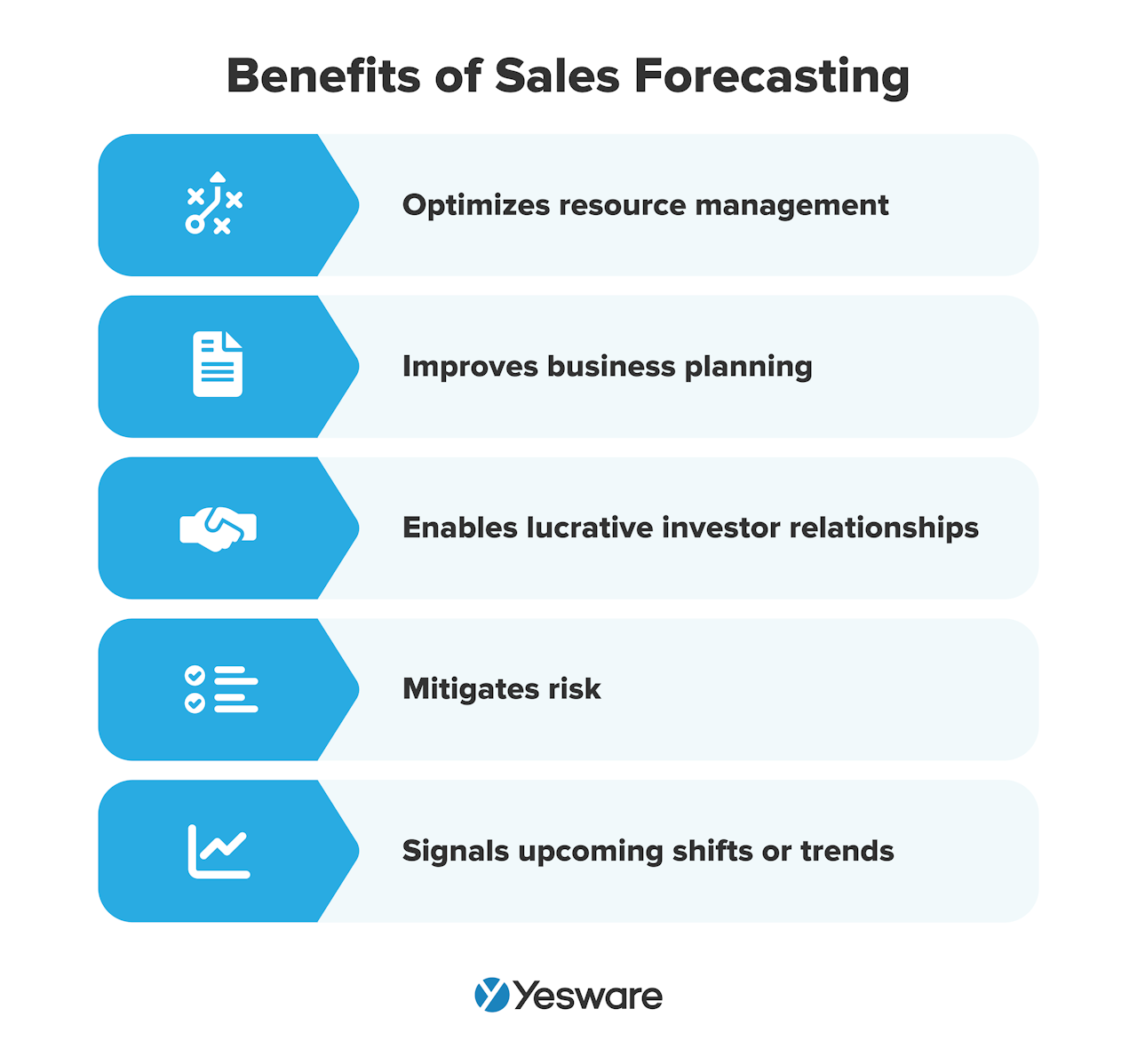 In addition to all of the internal benefits, investors also rely on accurate forecasting to help ensure their ROI is in line with their projections.
In addition to all of the internal benefits, investors also rely on accurate forecasting to help ensure their ROI is in line with their projections.
Sales forecasting may seem tedious, but studies show that 97% of organizations that implement a sales forecasting process meet their quotas. On the contrary, only a little more than half (55%) of those companies that don’t forecast are able to meet quota.
There are two main ways to approach forecasting during sales planning: top-down and bottom-up. 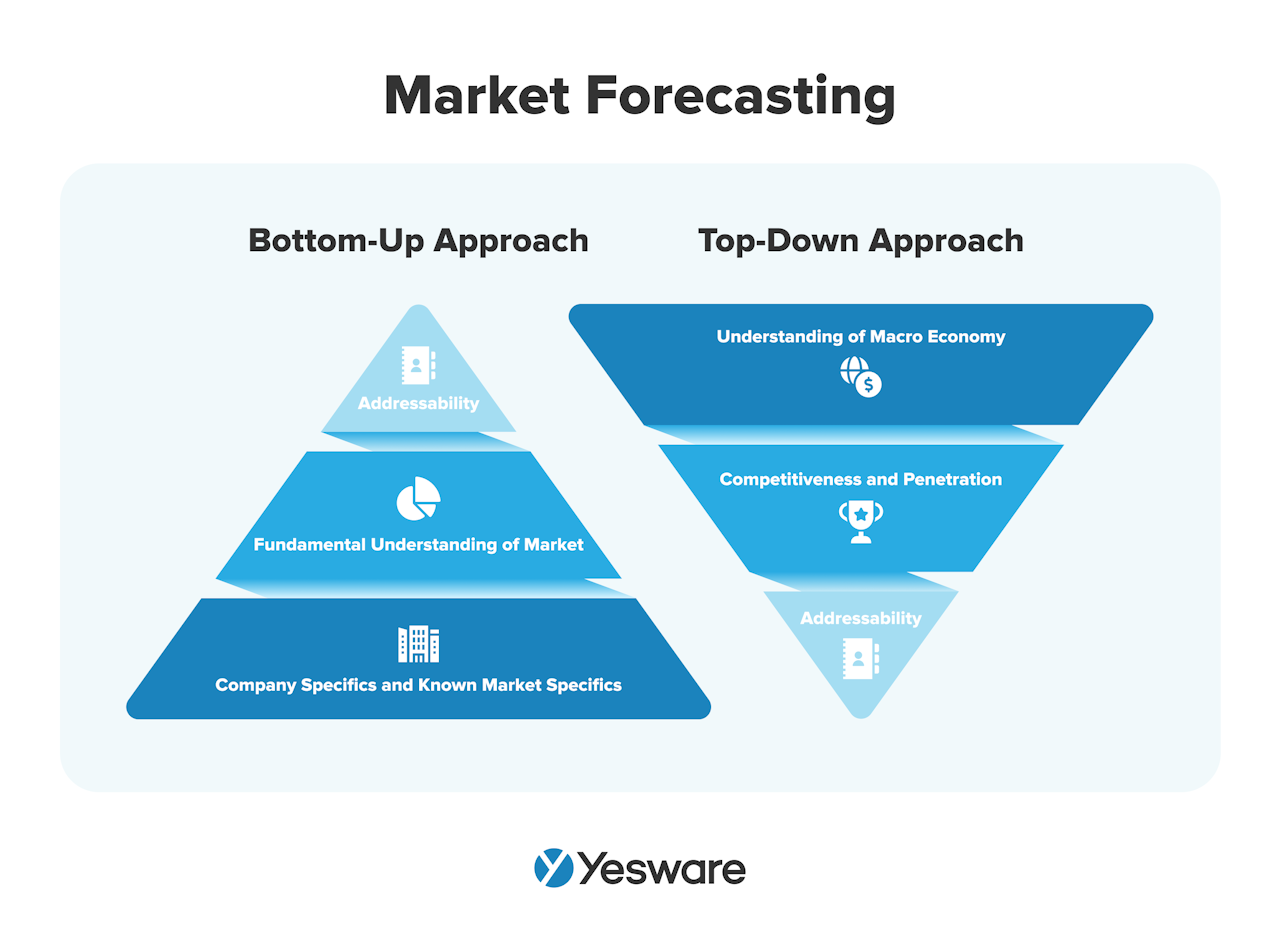 Many teams find that a combination of both types is most realistic and helps ensure accuracy.
Many teams find that a combination of both types is most realistic and helps ensure accuracy.
Monitoring and Analyzing Performance
Sales planning is time wasted if there aren’t steps in place to collect data and measure your team’s performance.
As you go through the sales planning process, be sure to note which key performance indicators (KPIs) you’ll be looking at to measure success.
The exact sales KPIs you choose to analyze will depend on the unique goals of your organization, but common ones include gross revenue, return on investment, daily web traffic, conversion rate, and quota attainment. 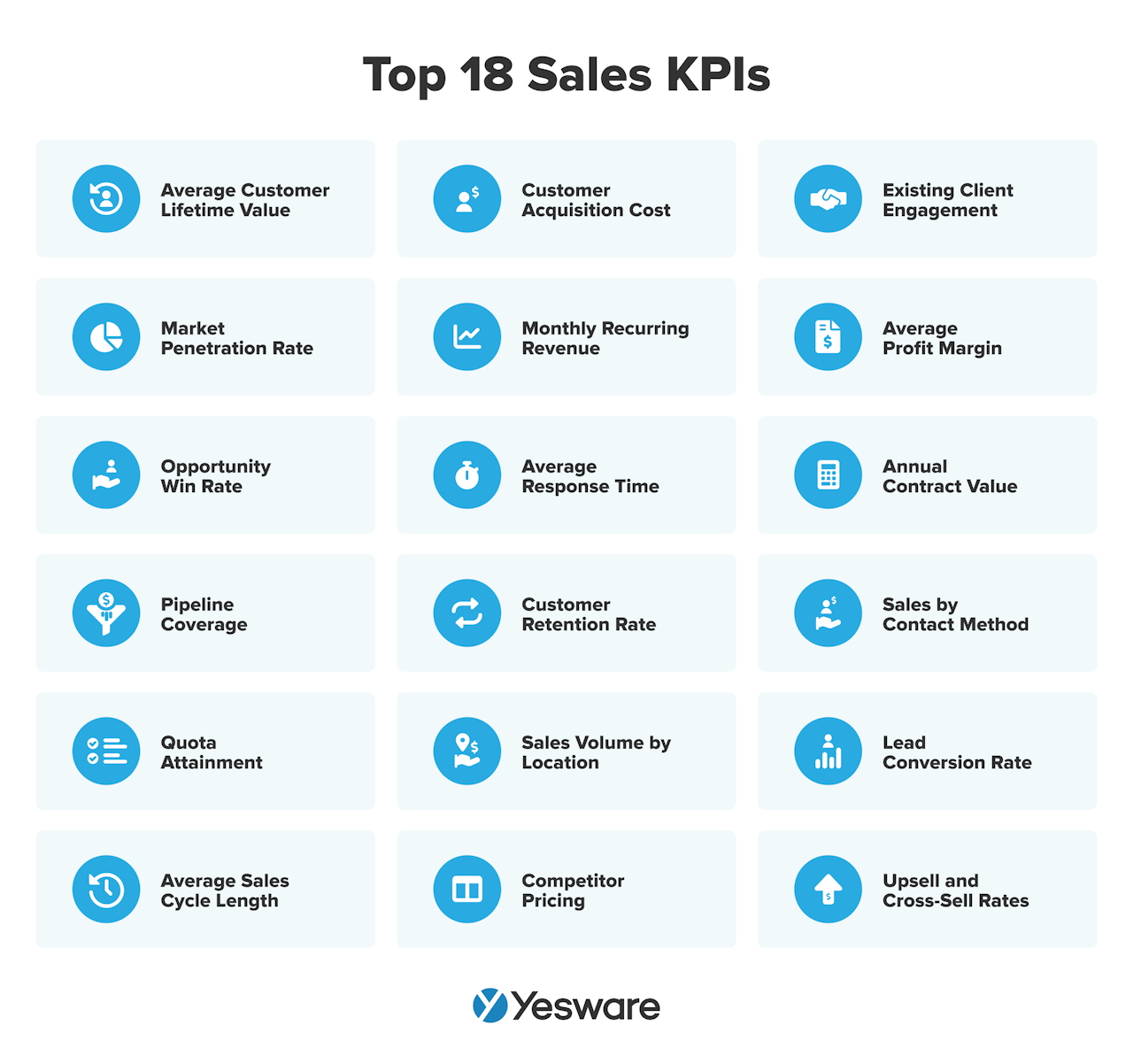 Sales managers can use KPIs to help keep tabs on how effectively individual sales reps — and the team as a whole — are executing the strategy outlined during sales planning.
Sales managers can use KPIs to help keep tabs on how effectively individual sales reps — and the team as a whole — are executing the strategy outlined during sales planning.
Remember, too, that tracking and analyzing data is only the first step. Great sales managers know how to turn data-driven insights into actionable feedback (via training and coaching, for example) that can help reps tangibly improve their performance.
To that end, make sure you’re scheduling regular performance reviews and coaching sessions with each member of your team.
Effective Communication within the Sales Team
Sales planning also gives sales teams a big advantage when it comes to communication. The better your sales planning, the more streamlined your inter-team communication and collaboration will be.
This may seem secondary to “big ticket” things like revenue generation and sales forecasting, but the way a sales team communicates can make or break their success and scalability over time.
Part of your sales planning process should be to outline all deadlines and directly responsible individuals (DRIs), as well as any details they need to know regarding data collection, reporting, and other accountability. This improves transparency and accountability.
To note, the goal here isn’t to micromanage, but rather to streamline communication and expectations.
Sales planning also helps sales managers more quickly identify when and where communication issues arise, if they ever do.
Some sales teams, for example, fall into the trap of working in silos and neglecting collaboration. With effective sales planning, sales managers can build in time for cross-team meetings and open channels of communication.
Sales managers who practice active listening with their team and target market will learn a lot about their (and their team’s) effectiveness. 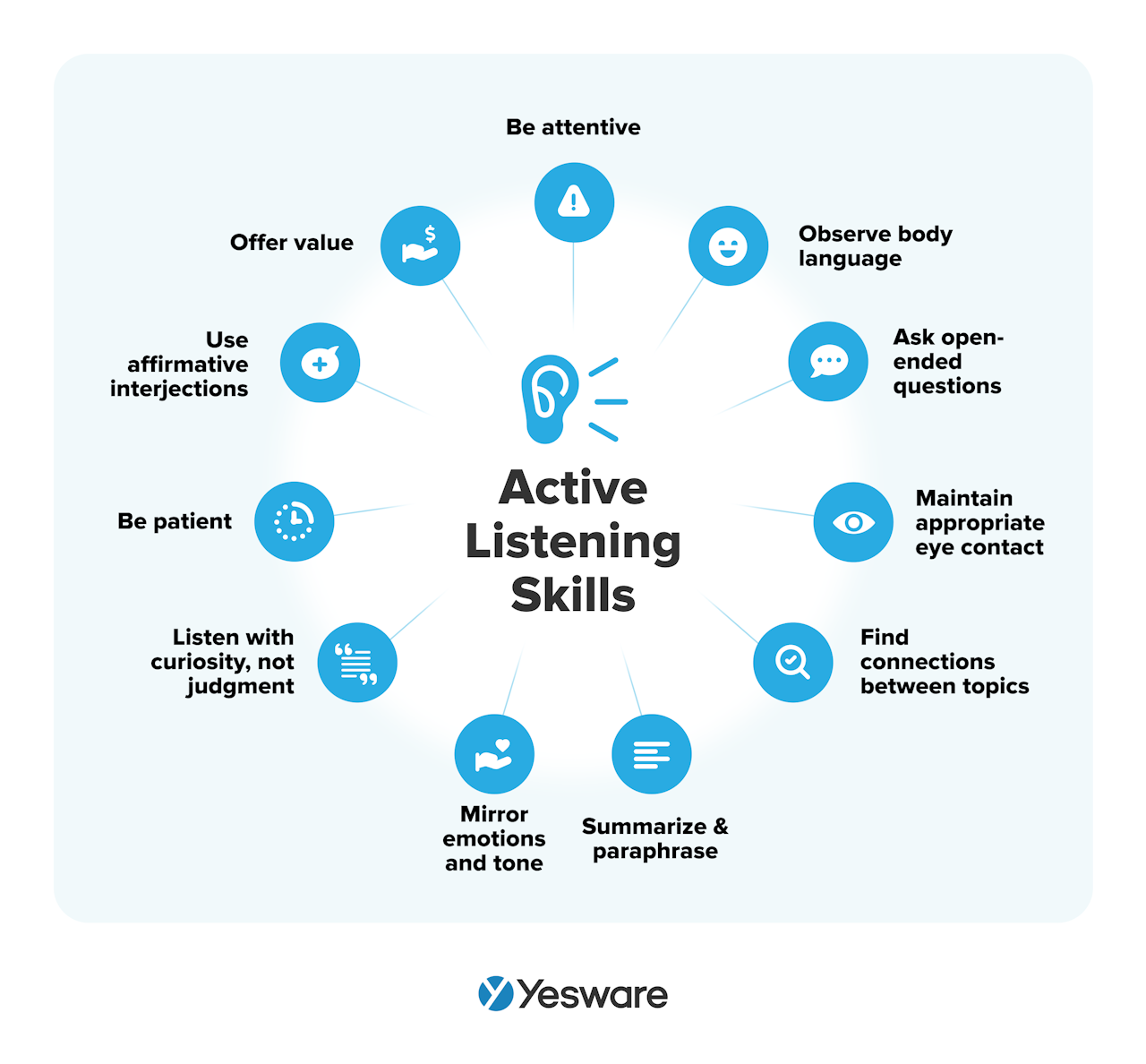 Sales managers should always be looking for ways to further streamline their communication efforts for maximum clarity, transparency, and accountability — sales planning can help them be more intentional towards those goals.
Sales managers should always be looking for ways to further streamline their communication efforts for maximum clarity, transparency, and accountability — sales planning can help them be more intentional towards those goals.
Adapting to Market Changes
Sales planning can help sales managers guide their teams through just about any condition in a dynamic and often unpredictable market.
This is one of the areas where continuous, ongoing sales planning is very important. Sales managers need to regularly survey what’s trending in the market, how the target audience is responding to their campaigns, and how the organization is measuring up against the competition.
Some sales teams find that pricing strategy can go a long way in helping them stay competitive in the market and stay on top of market trends. 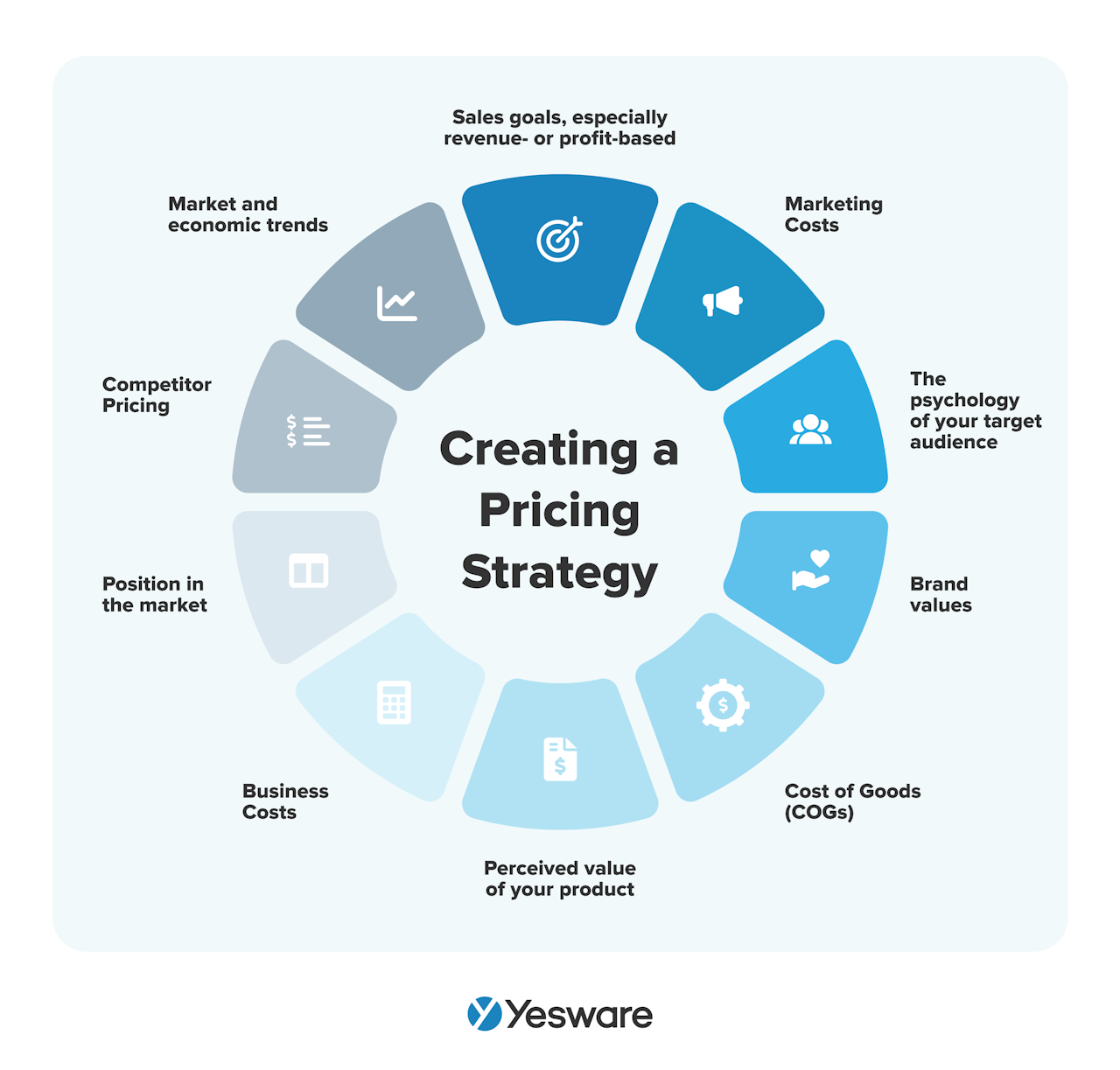 One thing to keep in mind: discounts and promotions are lucrative for buyers, but remember to find the middle ground between enticing your customers with freebies and generating enough revenue to make progress toward your sales targets.
One thing to keep in mind: discounts and promotions are lucrative for buyers, but remember to find the middle ground between enticing your customers with freebies and generating enough revenue to make progress toward your sales targets.
Many sales teams find that when they consistently focus on adding value to the buyer throughout the sales process, they can achieve success through just about most market trends and shifts.
Overall, the more connected sales reps stay with the needs of their target market, the better they can handle any potential disruptions or changes in the market.
Conclusion
Sales planning is one of the foundational parts of a sales manager’s job. The way a manager approaches this responsibility can dictate the difference between mediocre performance (or, in some cases, failure) and long-term sales success.
Though it may be a time-consuming and laborious process, the benefits of doing it right are numerous and both tangible and profound. The more methodical and purposeful they can be around the sales planning process, the better their results will be.
The right sales tools can make all the difference for managers who want to add automation and data-driven insights to their planning.
With Yesware’s suite of easy-to-use features like multi-channel campaigns, email templates, an enriched database of over 100+ million prospects, and sophisticated analytics, sales managers can keep all their bases covered and plans in place.
Get sales tips and strategies delivered straight to your inbox.
Yesware will help you generate more sales right from your inbox. Try our Outlook add-on or Gmail Chrome extension for free, forever!
Related Articles
Casey O'Connor
Casey O'Connor
Casey O'Connor
Sales, deal management, and communication tips for your inbox

